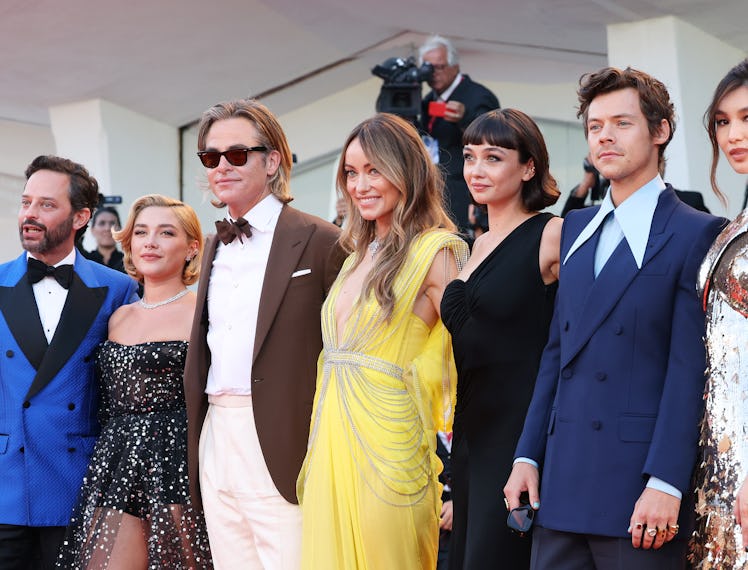Audiences Didn’t Hate Don’t Worry Darling, Despite All the Drama

Don’t Worry Darling co star Harry Styles was roundly roasted by the internet for claiming at the Venice Film Festival that his favorite part of the film was that it “feels like a movie.” Yet, when audiences exited their screenings this weekend, many knew exactly what he meant. The film may have had its flaws, but it certainly felt like a proper piece of cinema, with big movie stars, lush settings, and aspirations to be more than just another puzzle piece in a mega-franchise, a naked awards season play, or algorithm-driven streaming content. It’s the kind of movie Hollywood has been sorely missing lately.
“It was actually fine,” seems to be the take whirling around crowds as they exited theaters, or while discussing their reactions via text messages and on Twitter. The drubbing delivered by critics after Olivia Wilde’s second feature as a director debuted at Venice earlier this month didn’t seem to be echoed by audiences.
The film debuted at number one at the box office with just shy of $20 million in sales (a bit higher than Warner Brothers’s cautious expectations, and respectable for a film with a reported $35 million budget). It scored a B- on CinemaScore’s audience tracking, which Deadline claims is “in line for a genre movie” and “no surprise.” Likewise, according to PostTrak, 53 percent of audience goers say they’d definitely recommend the film to friends, while only 15 percent say they certainly would not (“actually quite healthy,” says Deadline). In less scientific tracking, the film has a 79 percent Fresh score from audiences (significantly higher than its 38 percent from the critics). Its user scores on IMDb (6.3 out of 10) and Letterboxd (3.2 stars out of 5) aren’t anything to write home about, but certainly don’t reflect a complete disaster, either.
The film’s costars provided most of the draw. Thirty-nine percent said they showed up to see Styles in his biggest role to date, while 38 percent said they came to see Pugh (an impressive number for an actress who has only recently broken into mainstream fare). Unsurprisingly, the audience leaned female, and forty-four percent of the audience was under 25.
On Twitter, the reaction was largely one of shock that the film wasn’t the total mess the aggregated review scores on Rotten Tomatoes and MetaCritic had made it out to be.
The film probably didn’t do itself any critical favors by debuting at the Venice Film Festival, where audiences are primed to view fare either through the lens of “possible Oscar contender” or “artistic triumph. Then again, the narrative surrounding the tense red carpet at the debut certainly seemed to help awareness.
Plus, its flaws (mainly a confusing second act) weren’t total sins. Everyone understood what the film was about and trying to say by the time the credits rolled. Besides, the film was visually pleasing enough (almost frenetically so) that it could easily be enjoyed with the sound off. All in all, sometimes audiences just want to see famous, pretty people act out something vaguely entertaining amid a good-looking setting. Hollywood would be wise to remember that. Maybe next time, they can make it happen without all the off-screen drama.